Who Am I Essay: Writing Tips and Sample
Your “Who am I?” essay is a paper where you describe yourself as a person. Mention what inspires and motivates you, what you love and don’t love, your goals and wishes, etc.
In this article, you’ll learn how to write this personal essay. (And please don’t miss a ready-made example to understand what to describe in your work!)

How to Write a “Who Am I” Essay
You’re that person who knows you best, but writing about yourself is still challenging:
You read a writing prompt for a college application or scholarship , and you aren’t sure if you understand it in detail. How do you know what exactly to mention in your essay? You can’t find words to describe your nature and skills. How do you know if that particular accomplishment or story from your life is worth including?
Stick with us here for practical tips on writing a “Who Am I” essay, with a free template to follow.
How to start?
Ask any writer, and they will tell you that the hardest part of the writing process is to start it. It’s a kind of writer’s block when you stare at a blank screen and don’t know what to write. Below are several ideas that can help you craft a compelling essay about yourself:
- Think about one sentence that would describe you best. (A technique some authors use for inspiration: Answer the question, “What would friends write on your grave?” or “What do you want the world to remember about you?” You can start an essay with that phrase.
- In the introduction, describe yourself in general . (Be truthful and honest.)
- Discuss one or two of your hobbies. (Choose those you’re most passionate about, those influencing your mood — and maybe your skills — most.)
- Highlight your achievements but don’t boast. ( Be reflective by analyzing and evaluating what you’ve achieved.)
- Add some personality to the essay. (Tell anecdotes, include examples, and be creative to keep readers engaged with your story.)
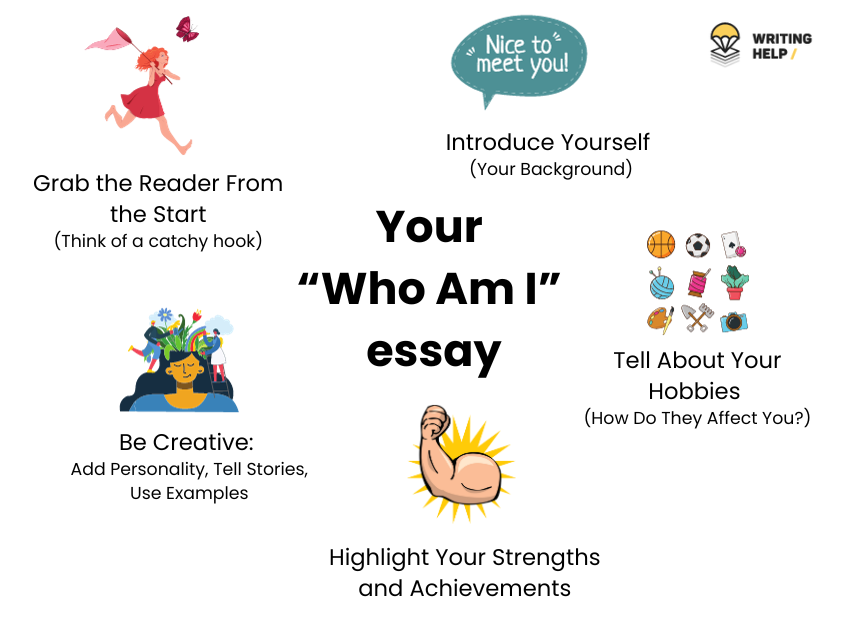
Short Essay About “Who I Am” Sample
You’re welcome to use the below template from our professional writer for crafting your future “Who am I” essays. Here it goes:
Actionable Tips to Improve Your Paper
Ready to start writing? Consider these helpful tips on crafting a person essay about who I am:
1) Understand your audience
Who will read your essay? Is it a college admission officer who knows nothing about you? Or, maybe it’s your school teacher with some background of who you are? Do you plan to publish your reflection for your social media followers or blog readers?
Depending on the audience, your story may change. Add details about what interests your readers: What would they want to know? Understanding your readers will make your essay more compelling (1). It will be easier for you to engage them and make them emotionally connected to your story.
2) Don’t be afraid to look vulnerable
Allow the readers to see your inner feelings. Sincerity and reflection are the new black, you know. It’s okay to speak about your strengths, weaknesses, or worries to the audience. That’s what differentiates you from other people, thus making you an individual.
Here’s the big secret:
Admission committees appreciate students’ understanding of their weaknesses and areas to grow. Communicate the willingness to change and grow. You’re just a human, after all.
Write about what you want to develop in yourself. Or, tell about life experiences that have changed or influenced you most.
3) Proofread and edit your essay
Once your essay is ready, it’s time to proofread and edit it. Here’s a short checklist of the details to fix if any:
- Grammar and punctuation mistakes (verb tenses, sentence structure)
- Spelling errors and inconsistencies in names or terms
- Incorrect capitalization
- No logical flow or transitions between paragraphs
- Excessive wordiness and repetition
- Biased language
- Too much passive voice and redundant adverbs
- Too sophisticated words and phrases that have simpler alternatives
That’s It: Your “Who Am I” Essay Is Ready
In this blog post, we tried to cover all the core details of personal essay writing. Now you know how to start it, what elements to include, and how to craft it for better readability and emotional connection with the audience.
We hope our 500-word essay example will help you write your perfect story about yourself. If you still have any questions, don’t hesitate to ask our professional writers for help.
References:
- https://summer.harvard.edu/blog/12-strategies-to-writing-the-perfect-college-essay/
- Essay samples
- Essay writing
- Writing tips
Recent Posts
- Writing the “Why Should Abortion Be Made Legal” Essay: Sample and Tips
- 3 Examples of Enduring Issue Essays to Write Yours Like a Pro
- Writing Essay on Friendship: 3 Samples to Get Inspired
- How to Structure a Leadership Essay (Samples to Consider)
- What Is Nursing Essay, and How to Write It Like a Pro
- Apply to College
- Applying For Scholarships
About Yourself College & Scholarship Essay Examples (2024)
Jennifer Finetti Oct 20, 2024

Get our best scholarship practices, insights & tips delivered to your inbox
Thank you for subscribing!
A popular scholarship essay prompt is “Tell us about yourself.” This question is relatively open-ended, which may make it difficult to answer at first glance. What should I tell them about myself? My struggles, my goals, my passions…? These may all be fitting topics, depending on the scholarship. We’ll show you some scholarship essay examples about yourself, along with writing tips to guide you along the way.
What they want to know about you
As you prepare to write, think of the topics the scholarship committee would be interested in. These may include:
- Your current degree, as it applies to your overall career goals. You can explain why you chose your current educational path and what you want to do with that.
- Your short-term and long-term professional goals . Frame your answer as if to say “Where will you be in 5 years? Where will you be in 10 years?” Scholarship committees like to reward people with defined aspirations.
- Past experiences that sparked your passions. You could talk about an influential person in your life, but make sure most of the essay focuses on you. After all, you are talking about yourself.
- Something about you that relates to their organization. With any scholarship essay, you should try to connect yourself with the organization providing the funding. Don’t force a connection. Find one that naturally fits. Mention hobbies, experiences and goals that match what the review committee is looking for.
- Something unique that sets you apart from other applicants. This may be volunteer experience, career specialties, situational differences (growing up in an area that didn’t encourage education), etc.

Note that you do not have to throw all this information into one essay. Choose the elements that best fit the scholarship. If you were on the review board, what would you want to learn about each applicant? What would make you choose one applicant over another? Keep this in mind as you develop your thoughts.
The fastest path to earning scholarships
Simplify and focus your application process with the one-stop platform for vetted scholarships.
What they don’t want to know about you
There is plenty of information you could include in an about yourself scholarship essay. There is just as much information to avoid though. Some topics to keep out of your essay include:
- False information. Do not make up stories or fabricate goals to fit the prompt. The scholarship committee can instantly tell when someone is lying, and they will disqualify you immediately.
- Past struggles that do not pertain to the essay topic. You can briefly mention struggles from your past, as long as you mention how you’ve learned from them. Do not make your essay a long story about the hard life you’ve led. Focus on your triumphs, not your obstacles.
- Vague goals and aspirations. Scholarships are usually given to students who have a plan. If you say, “I’m not sure what I’m doing yet,” the committee will select a more motivated candidate. If you have a plan and a backup plan, that’s fine. Just make sure you mention both options and show which one you favor.
- Cliché stories that most people tell. There is something that makes you stand out as a person. Use that to your advantage. Don’t rely on generic information they’ll find with other applicants.
- Unrelated elements of your personal life. In most cases, you should not mention your significant other in the essay. You might mention a spouse if you need to reference your children or a turning point in your life, but these personal details do not fit most essays. Any information that seems frivolous or ill-placed should be removed from the essay.
Read through your essay carefully. If you stop at one point to say, “Why did I mention that?” get rid of the corresponding information. Showcase the best elements about yourself in a fluid and cohesive manner.
Short scholarship essay example: Tell us about yourself (100 Words)
With 100 words, you can only focus on one or two elements of your life. Think about your biggest selling points – the things that show you are the ideal candidate. Start by introducing yourself and your educational status. Then jump into the main topic of the essay. You may not have room to mention how the scholarship will help your education. Instead, mention how your education can help your career. The other information will be implied.
My name is Christian Wood. I am a high school senior who will be attending the University of Nevada, Reno in the fall. I want to become an online journalist. My goal is to work for the Wall Street Journal, Bloomberg, Huffington Post, or another news outlet that has a strong online presence. Most people already get their news on the internet, and the industry will be even bigger by the time I graduate. Getting a degree in journalism with a focus on digital media will set me up for a fulfilling, fast-paced career fit for the future.
Word Count: 96
Medium scholarship essay example: Tell us about yourself (250 Words)
With a mid-length scholarship essay, you have more space to explain how your past has influenced your present and future goals. You should have rom for an intro paragraph, a few body paragraphs, and a conclusion (maybe incorporated into the last body paragraph). Think of a few main points you want to touch on, and write those down first. If you still have room, you can add more details about yourself.
My name is Sarah, and I spent most of my childhood on the wrong medication. I experienced a problem common in clinical psychology – misdiagnosis. Professionals provide inaccurate diagnoses for many reasons – f rom antiquated testing methods to limited education. I want to open my own psychological testing facility and help change that. Therefore, I am pursuing a Ph.D. in Clinical Neuropsychology. I was diagnosed with ADHD as a child because I had trouble focusing in school. The medication m y doctor prescribed to me only made me numb to the world around me. I couldn’t think or process emotions, or had no emotions at all. After several years my parents finally decided to get a second opinion. I saw a specialist and she concluded that I didn’t have ADHD , but a combination of dyslexia and dysgraphia (difficulties with reading and writing). She sent us to a therapist who helped me learn how to work around my conditions, and my life improved tremendously. I went from being a lifeless student with barely passing grades to an honor roll student full of joy and excitement. Unfortunately, my story is not one of a kind. There are countless children in America who are put on mind-altering medications that do not adequately address their needs. I cannot help all of those children, but I can provide a better alternative for the ones in my area. Through proper education, funded by financial aid, I can learn about psychological evaluations and provide the most accurate diagnoses possible.
Word Count: 249
Long scholarship essay example: Tell us about yourself (500 Words)
Scholarship essays that are 500 words or longer let you tell the whole story. You can discuss your past, present and future in a comprehensive manner. Avoid rambling and make sure each topic contributes to the overall essay. If one piece feels out of place, remove it and elaborate more on the existing elements. By the end of the essay, the reader should have a full understanding of who you are and what you want to accomplish.
My name is Sierra Breault, and I am a junior at Murray State University. I am double-majoring in Criminal Justice and Forensics Science, and I will graduate in 2024 with two bachelor degrees. My career goal is in social justice, so I can contribute to criminal justice reform. I want to ensure that those who commit crimes are treated fairly. I come from a small town where excessive force and even death by cop incidents are often committed, especially against minorities. A few years ago, one of my relatives was charged for a crime although the crime scene evidence wasn’t properly obtained, catalogued and analyzed. This experience played a big part in my wish to study criminal justice. I started exploring the career more when I decided that a desk job just wasn’t for me. Throughout high school I struggled because of the routine nature of it all. I saw the same people and attended the same classes every single day. I knew I didn’t want a job that would be that stagnant. That’s when I got the idea to work in law enforcement, because there would always be a new challenge for me to tackle. After researching the field even more, I set my sights on crime scene investigation. I have performed much better academically in college than I ever did in high school. That’s because there is no routine to the experience. Every week, I have new projects to complete, tests to study for, and activities to try. I have been involved with the campus Crime Stoppers organization all three years of college, and I was elected president for the upcoming term. This lets me work closely with law enforcement to supplement my college education and further my career. After graduating, I will apply for work as a dispatcher in a state organization, such as the Department of Criminal Investigation. While my ultimate goal is to work as a forensic analyst or crime scene investigator, those positions usually only go to people within the organization. Dispatch is the most direct option for career entry, giving me the best chance to pursue my dream career. I am applying for this scholarship to help me finish the last two years of my degrees. As a college junior and soon-to-be senior, my scholarship opportunities are limited. Most awards are reserved for freshmen. I took advantage of those early on, and I have one recurring scholarship that covers half of my tuition. However, I need additional financial aid to cover the remainder of my academic costs. I appreciate your consideration, and I hope that you can help me pursue a profession in criminal justice. This is my passion, and I have a clear plan to turn that passion into a lifelong career.
Word Count: 463
YOU SHOULD ALSO READ
Why I Deserve This Scholarship Essay Examples
Essay: How Will This Scholarship Help You Achieve Your Goals (W/Example)
Scholarship Essay Examples – Career Goals
Financial Need Scholarship Essay Examples
How to Write a Scholarship Motivation Letter
- Scholarship Essay

Jennifer Finetti
Jennifer brings over 20 years experience in edtech, marketing, communications, content development, academic advising, and financial aid & scholarship counseling to ScholarshipOwl. She is also a marketing consultant and content developer for Diablo Valley College in Pleasant Hill, California, where she writes the college's biannual publication, DVC Magazine. Jennifer is a college financial aid and scholarship expert who has been seen on news segments across the country as well as in USA Today, CNBC, and Yahoo! Finance. She earned her MA in Counseling Psychology from National University, and her BA in Psychology from University of California, Santa Cruz.
Related Stories View All

38 Ohio Scholarships You Can Win Today

Rihanna Scholarship

Boston Marathon Runner-Up Spends Prize Money to Pay Off Student Debt
Get started with scholarshipowl.
Simplify and focus your application process with the one-stop platform for vetted scholarships
- How it works
- Latest orders
- Our writers
How to Describe Yourself In an Essay: Guide, Tips, and Free Sample
“Tell me about your self.” As a rule, this phrase makes us forget pretty much every fact about our life, goals, qualities, and other essential things. And we start mumbling, sweating, and shivering. Ironically, we have to describe ourselves during the most important meetings – job interviews or college application interviews.
A bit of practice won’t hurt, so we want to teach you how to describe yourself in an essay. When you get used to writing about yourself, talking about yourself becomes much easier. Also, a describe yourself essay sample may become a great foundation for your admissions essay. Actually, these essay types are similar, but admissions essays are more formal.
So, let’s start with a helpful guide and tips from EssayBulls essay writer, and then we’ll be glad to share our sample with you.
How to Write a Describe Yourself Essay: Step-by-Step Guide
1. Define your goal
What are you writing your describe yourself essay sample for? Maybe you want to impress an admissions board? Or perhaps you just need to analyze your goals and accomplishments? Your goal defines the topic, tone, and structure of your essay, so defining it is crucial.
2. Narrow your topic
You can’t fit your entire life in one page. Lengthy essays turn into memoirs, and that’s a totally different genre. According to your goal, pick the topic that seems the most important in this particular case.
3. Write down your ideas
You might have thousands of ideas in your head, and you’ll never be able to structure them without notes. Write down your thoughts and divide them into various categories. This exercise will help you to select the ideas that are compatible with each other.
4. Make an outline
This step is also about structuring your ideas. Remember that this type of essay doesn’t need to stick to academic requirements, but it still should be logical and consistent. Decide what you want to write first to grab the attention of your readers, and then how you’re going to finish your essay for a good aftertaste.
5. Compose the first draft
Overcoming the fear of a blank page can be hard, especially if you’re not in the right mood. But you don’t have to be strict toward yourself! Try to draw inspiration from your favorite song or take a nice walk. The first draft doesn’t have to be perfect, as you’ll have much time to polish it.
6. Take a deep breath
In other words – have some rest. Your brain can’t work for hours and remain concentrated. Make a nice cup of tea and watch one episode of your favorite TV show. You don’t have to hurry – let your muse take a nap.
7. Read and rewrite
Admitting our mistakes isn’t easy. But people aren’t perfect, just face it. You should reread and rewrite your sample until you are 100% satisfied with its quality. We also recommend you to use online services that help students to correct grammar and spelling mistakes.
8. Format your paper
If you’re planning to send your describe yourself essay sample somewhere, make sure that it’s formatted properly. No one will give grades to your essay, but you still want to make a good impression, don’t you?
9. Get feedback
Comments from your friends or family will help you to notice inaccuracies or mistakes that you’ve missed. They may also give you a hint on how to make your essay more exciting.
We’re sure that you want to know not only how to write a describe yourself essay, but also how to make it brilliant. Below, you’ll find a bunch of quick-fire tips that will be helpful.
How to Describe Yourself in an Essay: Useful Tips
• Ask questions
As a rule, you don’t know or realize all of the truths about your personality. Perhaps, you have priceless qualities that you don’t notice, or your parents have exciting stories about your childhood hobbies. Before starting the writing process, do your research. Ask yourself and ask everybody else what is special about you.
• Pick the main aspects
As we mentioned earlier, you can’t fit your entire life in one page. You should choose two or three main aspects that you’ll include in your essay. We hope that our list will help you:
- Work Experience
- Passion/hobby
- Important event
- Life-changing challenge
• Make it interesting
Add details that make your sample unique. Nobody is interested in your GPA when they read your personal essay – they want to hear your personal voice! For example, when you prepare a describe yourself essay sample for the application process, this paper is the only way for admissions officers to see who is hiding behind the grades and academic accomplishments. Give them this chance!
• Express your personality
Don’t be afraid of showing your inner world! That’s what these essays are for. Your readers won’t be happy if they see an ideal portrait with nothing that gives away your personality.
• Avoid sensitive issues
However, you shouldn’t cross the line. You never know who is going to read your essay, so avoid the following sensitive topics: religion, politics, race, abortion, gender equality, sexual identity, etc.
Your essay will shine like a diamond if you use all of our tips! The most important thing is to believe in yourself and your writing skills. To give you more confidence, we’ve prepared a describe yourself essay example. You can get ideas and inspiration from it, or use it as a template. But we kindly ask you not to copy our sample, as it’ll be considered plagiarism.
Describe Yourself Essay Sample
Your passion can tell a lot about your personality. An indecisive person would never practice extreme sports, and an environmentalist would not collect butterflies under any circumstance. We can pretend to be someone else in many aspects, but our passions will always give us away. My passion is reading. And you may laugh and say that it’s too basic to be someone’s passion. I’ve heard many times that an applicant should never include reading in his or her “interests” section in a CV because there is no way it will attract the attention of the employer. But I think this is not fair. Reading has been my passion for nearly 15 years now. I had learned how to read when I was 5, and now I’m almost 20. And I don’t really know how many books I’ve actually read. I have tried to keep a journal, but it hasn’t helped. In my opinion, reading is the most exciting thing in this world. No history, anthropology, or psychology lessons will let you see the world through the eyes of another person the way books let you. Your life isn’t limited to your existence if you read books. Your mind and heart absorb the emotions and ideas of hundreds of characters, and your worldview becomes broader. Fortunately, my parents are bookworms just like me. Our house looks more like a library than a normal home. And we’re totally fine with this. I think that without parental support and approval, my dream wouldn’t seem that real to me. My passion has led me to a logical decision. I want to become a professional publisher because I want to have a job that doesn’t make me feel miserable. At the same time, I believe in my abilities, so I have no concerns about my income. When I was 17, I started an online magazine dedicated to literature and criticism. This hobby has helped me to enter Emerson College and start my publishing program. I also work as a part-time editor in the Boston Herald. My college has strong connections with various publishing houses, and I hope that this fact will help me to get my first full-time job, or at least an internship. I don’t know what my future will bring. But I’m sure that any dream, even the most ordinary or boring, at first sight, can turn into something great if you don’t give it up.
Describe Yourself Essay Help
That’s all. Our article on how to write a describe yourself essay is complete. We hope that you have no question about this essay type and are ready to start the writing process. In case you need more help with your admissions essay, or want to buy personal statements online to get 100% positive result, EssayBulls is always ready to provide assistance. We’re available 24/7, so apply to us at any time. Buy essay for college from our experts and simplify your college life now!
Related posts
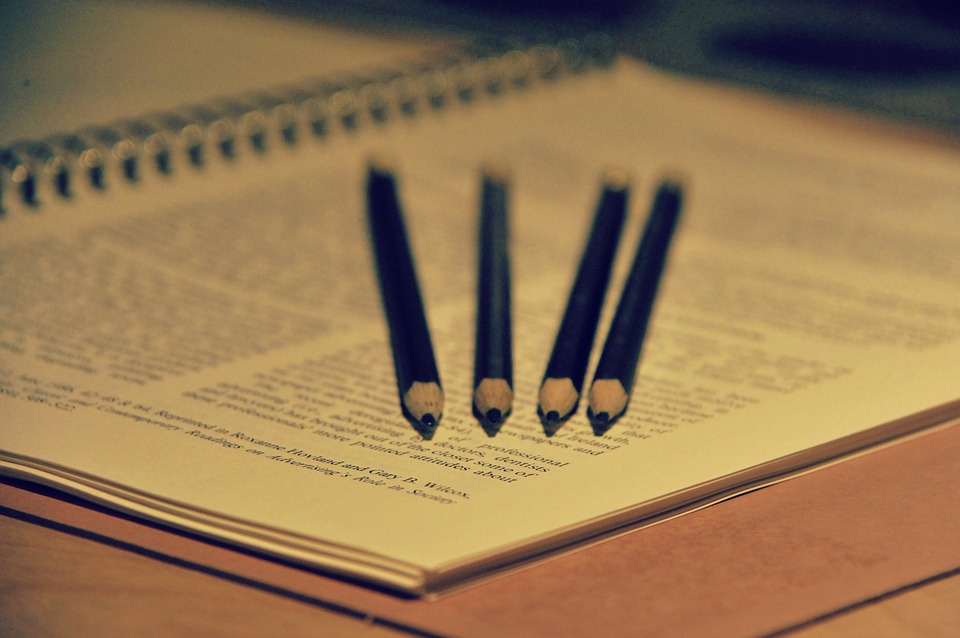
Write more such articles). Thanks.
Oh! that’s nice! I was looking for a guide how to describe yourself and this is the most helpful!
Sometimes all that you need to start writing is posts like this one…
Do you help people with describing essays?
Yes, our writer will help you with a descriptive essay. All you have to do is to place an order on https://essaybulls.com/ .
special thanks for the sample at the end!
The sample is large enough, do you think I can write a smaller essay? I just don’t know what else to add …
If you would like to write a larger essay, but do not know what to add, we can help you. You just need to place an order on EssayBulls.
Better guide I can’t imagine!!!
I noticed this post is written in simple and understandable way for anyone. By far the best tips!
Thank god I found myself a helpful guide to follow during writing…
I often come here to order essays but didn’t thin they have such posts to help with writing. My respect.
This article is too cool!
Thank you for lots of helpful posts! <3
Leave a Reply Cancel reply
Your email address will not be published. Required fields are marked *
Save my name, email, and website in this browser for the next time I comment.
Captcha* 61 − = 52

How to Write an Essay About Yourself | Writing Guide
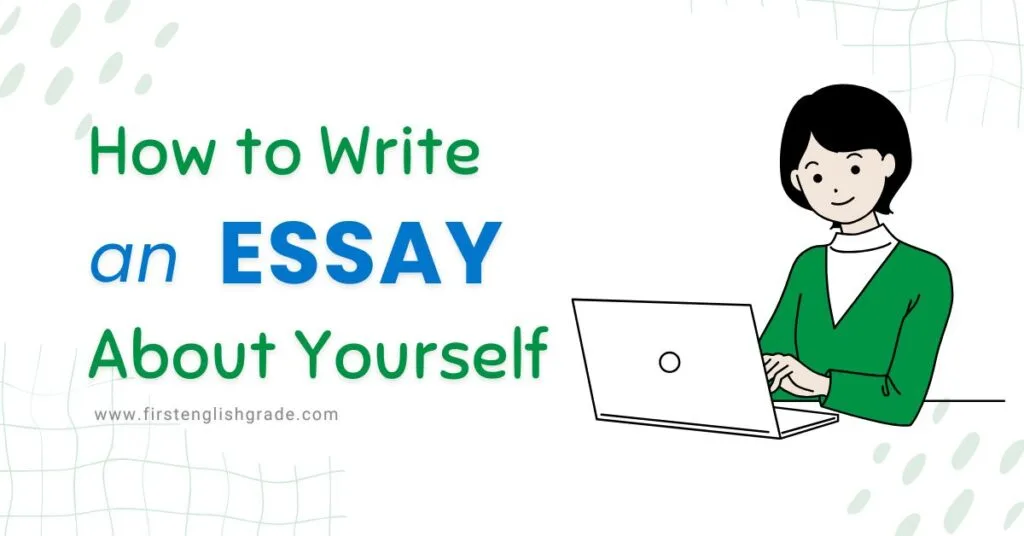
Writing an essay about yourself might seem simple. After all, who knows you better than you do? But creating a compelling personal story takes careful planning, self-reflection, and a thoughtful approach. This guide will help you write an essay that grabs attention and leaves a lasting impression.
Content Guide

What is the Purpose of an Essay About Yourself?
Essay about yourself is all about looking inward and showing who you truly are. Personal essays let you to share your life stories, thoughts, and personal growth. Whether you’re writing for college applications, scholarships, job openings, or just a school project, a well-crafted personal essay can make a strong impact.
Types of Personal Essays
- College Admission Essays : College admission essays allow applicants to showcase their unique qualities and experiences, as highlighted in The College Board’s comprehensive guide on college application essay .
- Scholarship Applications : Highlight your unique skills, accomplishments, and goals.
- Professional Profiles : Showcase your traits, abilities, and experiences.
Think about why you are writing your essay. Are you hoping to stand out in a competitive college admissions process? Do you want to share an inspiring moment that shaped your goals? Understanding the purpose of your essay will guide your approach.
Key Elements of Personal Essays
Every great personal essay shares some important qualities:
- Honesty and Authenticity : Be true to yourself and share real thoughts and stories.
- Clarity and Focus : Make sure your essay has a clear goal and conveys your main points effectively.
- Engaging Writing Techniques : Using writing techniques, such as vivid language and storytelling, can help captivate readers and convey authenticity.
Think of one word that describes you best. How does this word show up in your life experiences? Jot down examples to help brainstorm for your essay.
How to Write an Essay About Yourself
Writing an essay about yourself can be a rewarding and insightful experience. It’s great for personal statements or reflective pieces. The key is to show your unique qualities, experiences, and growth. Here’s how to write an engaging essay about yourself:
Brainstorm Standout Qualities and Experiences
Take some time to reflect on your life experiences. Get a blank piece of paper and write down moments that stand out to you. Focus on times when you felt proud, faced a challenge, or experienced personal growth.
For example, I once found myself leading a neighborhood cleanup after a storm. At first, it felt overwhelming, but by the end of the day, I learned the power of community and perseverance.
Pause and think about a moment in your life that made you feel proud or changed you in some way. What lessons did you learn?
Choose Your Main Topic
From your brainstorming session , pick one strong idea that you can build your essay around. Your topic should be meaningful to you and interesting for others to read.
Let’s say you brainstormed about learning to cook with your grandmother – this could become an essay about family traditions, learning patience, or discovering your passion for cooking.
Use Vivid Details and Examples
Instead of just listing facts, paint a picture with your words. This helps your reader visualize your experiences and connect with your story.
Reflect on Personal Growth
One of the most powerful parts of a personal essay is showing how you’ve grown. Ask yourself: What did I learn from this experience? How has it shaped who I am today?
Once you’ve reflected on your growth, think about how to structure your story to make your essay flow smoothly.
Creating Your Essay Structure
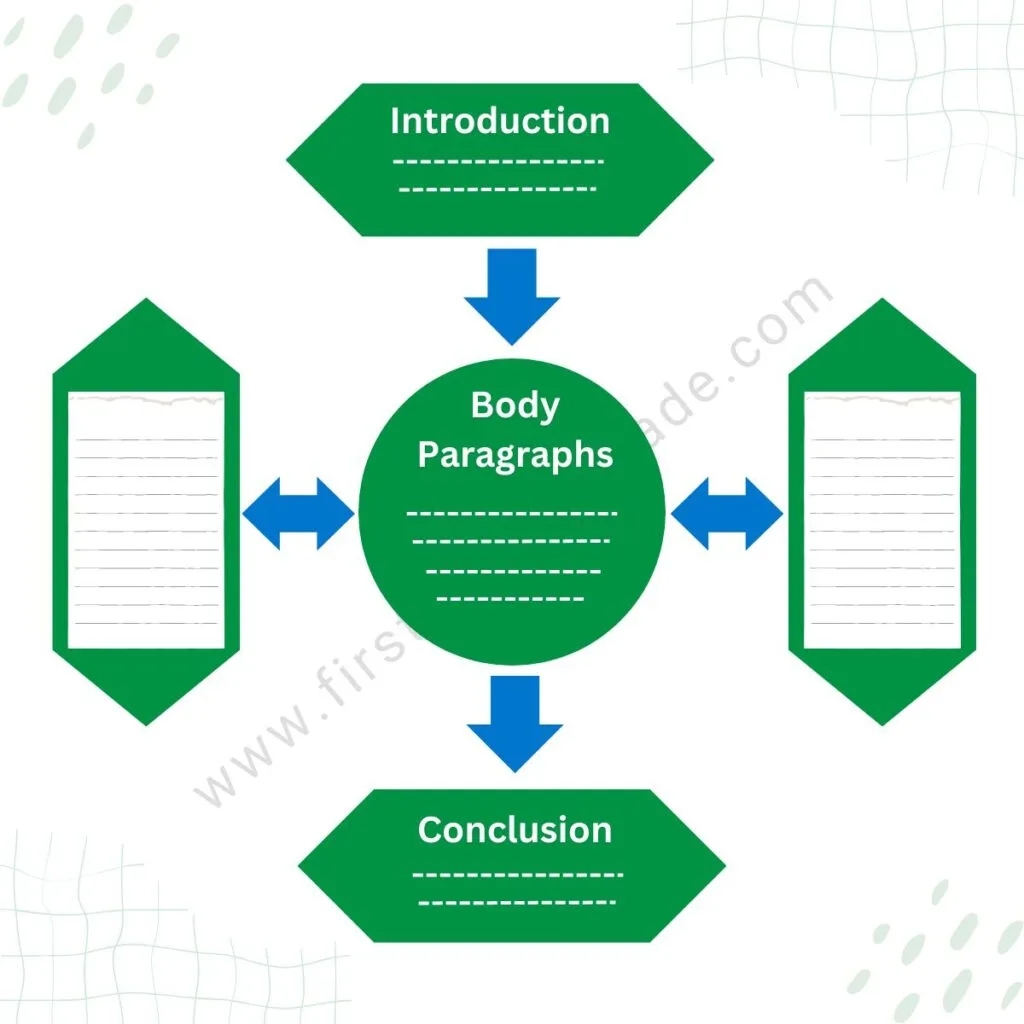
Organize your essay into a clear beginning, middle, and end. Start with an introduction that hooks the reader and provides a glimpse of what’s to come. Use the body paragraphs to dive into your story, and wrap up with a conclusion that ties everything together.
Introduction
Your introduction should hook the reader and set the tone for the essay. It should include a sneak peek into the main theme you will explore.
Example Introduction:
“The kitchen timer rang, and the warm smell of vanilla and cinnamon filled our small apartment. I smiled as I pulled the cookies from the oven, remembering the first time I baked with Grandma Rosa. Back then, I didn’t know baking would teach me more than recipes—it would teach me patience and creativity.”
Think of a personal moment that grabs attention. What’s the first sentence that would make someone want to keep reading your story?
Body Paragraphs
The body paragraphs are where you dive into the details of your story. Each paragraph should support the main theme, using specific experiences and vivid details. Here’s how to craft strong body paragraphs:
- Start with a topic sentence : Introduce the main idea of the paragraph.
- Use specific examples : Share moments that illustrate your experience.
- Reflect on the meaning : Include insights or lessons learned to show growth.
Example Body Paragraph:
“Every Sunday, Grandma Rosa would tie an apron around my waist and pull out her worn recipe book. ‘Cooking is about patience,’ she would say as she showed me how to measure flour exactly or explained why we needed to wait for the butter to soften. At first, I found it frustrating. I wanted to rush through the steps and see the cookies finished, but each lesson taught me to slow down and focus. That patience later became a skill I relied on while studying for tough exams and navigating life’s challenges.”
Use phrases that guide the reader through your story, like “As time went on,” or “I soon realized that…” .
Pause and think about the most significant details in your story. What small moments help show your growth or lesson learned?
The conclusion should tie your story together, emphasizing what you’ve learned or how the experience has shaped you. Avoid ending abruptly—leave your reader with a clear takeaway or a memorable final thought.
Example Conclusion:
“Now, as I teach my younger sister how to make Grandma Rosa’s recipes, I understand that those baking lessons were really life lessons in disguise. Patience, precision, and creativity aren’t just baking skills—they’re tools I use every day in school and life. When I look back at those Sunday afternoons, I realize that Grandma Rosa was teaching me more than how to bake. She was teaching me how to handle life with grace and determination.”
Ask yourself: What’s the most important takeaway from your story? How can you end with a sentence that resonates with the reader?
How to Start an Essay About Yourself
Starting your essay in a captivating way is key to grabbing the reader’s attention. Your opening statement sets the tone and invites them into your story.
Hook Strategies That Capture Attention
Use one of these strategies to create an engaging opening:
- Start with a surprising fact or question : “Did you know that the average person changes careers three to seven times in their lifetime? My journey has been no exception.”
- Begin with a vivid memory or anecdote : “The sound of raindrops tapping against my window was like nature’s own drumbeat. It was the night before my first big move, and I felt both excited and terrified.”
- Open with a quote : Choose a quote that fits the message of your essay. “The story of my life is a series of moments, each one teaching me who I am.” – Unknown
Pause and write down three opening sentences for your essay. Which one feels the most compelling?
Incorporating Personal Experiences and Achievements
When writing an essay about yourself, find the right mix. You need to balance self-reflection and showcasing your personality . Choose experiences that reveal who you are and what you’ve learned.
How to Weave in Personal Experiences:
- Choose relevant stories : Pick experiences that support the main point of your essay.
- Add vivid details : Instead of saying, “I volunteered at an animal shelter,” describe it: “Every Saturday, I would walk into the shelter to the sound of barking dogs and the warm, welcoming smell of hay. It was here that I developed a deep empathy for those who couldn’t speak for themselves.”
- Reflect on what you learned : This is where you show growth. “Working at the shelter didn’t just teach me how to care for animals; it taught me the importance of compassion and persistence in all areas of my life.”
Make a quick list of three experiences that have shaped you. Next to each, jot down what you learned or how it impacted you.
Example Table of Personal Experiences:
Developing Your Writing Style
Writing a personal essay is more than just telling your story. It’s about showing your writing techniques and personality. You do this through your language, tone, and how you tell your story. We’ll look at ways to make your writing better and keep your readers interested.
Using Descriptive Language
You should use vivid language while writing an essay about yourself. This makes your story come alive for your readers. Try using metaphors, similes, and other figures of speech to make your story vivid.
Vary sentence structure
Mix short, impactful sentences with longer, more descriptive ones to keep your readers engaged. This keeps your essay exciting and keeps readers hooked until the end.
Balancing Show vs Tell
Good stories show, not tell. Instead of saying how you feel, show it through what you do and say. This makes your story more real and impactful for your readers.
“ Let your actions speak for your emotions. ”
Pick a sentence from your essay and rewrite it using more vivid language.
Editing and Refining Your Personal Essay
After drafting your essay, don’t rush to the finish line. Editing is where good writing becomes great.
Start by reviewing your essay yourself. Look for ways to make it better. Check the essay structure , how your story flows, and if your writing is clear.
Also, getting feedback from others can be helpful. Ask people you trust or mentors to read your essay. They can give you new ideas, point out what needs work, and suggest ways to make your writing better.
Read your essay out loud. Does it sound natural? Are there parts where you stumble or lose focus? Mark these sections and revise them.
Common Mistakes to Avoid in Personal Essays
Writing an essay about yourself is more than just telling your story. You must avoid common mistakes that can hurt your message. Let’s look at some important tips to help you write with confidence.
Being too general or vague
One big issue is being too general or vague. Personal essays need specific details and vivid descriptions to pull the reader into your story. Don’t just list your achievements without adding context or reflection.
Do not overshare
Being real is important, but too much information can push people away. Find a balance between sharing enough and keeping some things private. Stick to the most important parts that tell your story well.
Addressing sensitive topics without care
Sensitive topics like gender, race, politics, or religion can be challenging to navigate in a personal essay. Only discuss these topics if they are directly relevant to your narrative and handled with utmost care and sensitivity.
Excessive use of a thesaurus
Using a thesaurus excessively can make your writing sound unnatural and disconnected from your authentic voice. Focus on using clear, conversational language that resonates with your audience.
Abrupt ending
Ending your essay abruptly can leave the reader feeling unsatisfied or disconnected from your message. Conclude with a summary that reinforces your main theme and provides a memorable closing statement.
By avoiding these personal essay mistakes and using these essay writing tips , you can write a personal essay about yourself that captivates and impacts. The secret to a great personal essay is engaging the reader and sharing a story that resonates with them.
Essay About Yourself Example: Learning to Lead
It was the first day of summer camp, and my stomach was full of nervous butterflies. I had been chosen as a group leader for the first time, and I wasn’t sure I could do it. I looked around at the other campers, laughing and talking, and wondered if I could get them to listen to me.
On the second day, we were supposed to build a small boat out of cardboard and tape for a race across the pool. I wanted everything to go smoothly, but everyone had their own ideas. Some wanted to make the boat look fancy, while others just wanted to make it strong enough to float. As everyone started arguing, I felt panic rising in my chest. What if I couldn’t handle this?
I took a deep breath and remembered what my older brother once told me: “A good leader listens first.” So, I asked everyone to stop and share their ideas one at a time. After listening to everyone, we picked the best parts of each plan and started building. The laughter and teamwork that followed made me realize that leadership wasn’t just about giving orders—it was about bringing people together.
When the race started, our boat wasn’t the fastest, but it stayed afloat. We cheered as it crossed the finish line, and I felt a warm pride that wasn’t about winning. I learned that being a leader means helping others work as a team and making everyone feel included.
Looking back, that day taught me more than just how to lead a group. It showed me that even when I feel unsure, I can handle challenges by listening, being patient, and trusting myself. That lesson is something I carry with me, not just at camp but everywhere I go.
Final Thoughts
Writing an essay about yourself is an opportunity to share your unique story and show what makes you who you are. Embrace the process, be honest, and don’t be afraid to share a piece of yourself. With thoughtful planning and reflection, your essay will resonate and leave a mark.
Before you finish, ask yourself: Does this essay sound like me ? If it feels genuine, you’re on the right track.
Related Posts
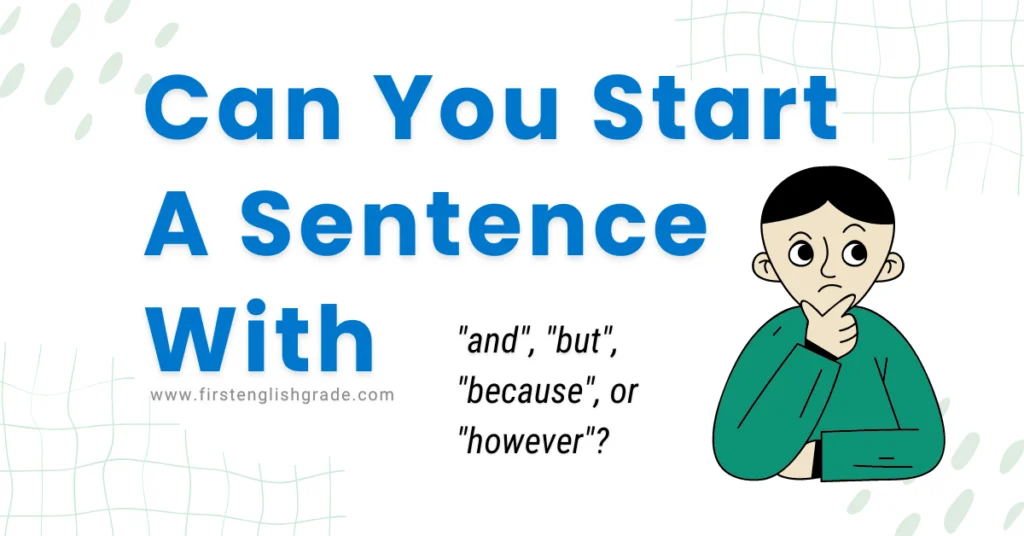
Can You Start A Sentence With Conjunctions And Other Words?
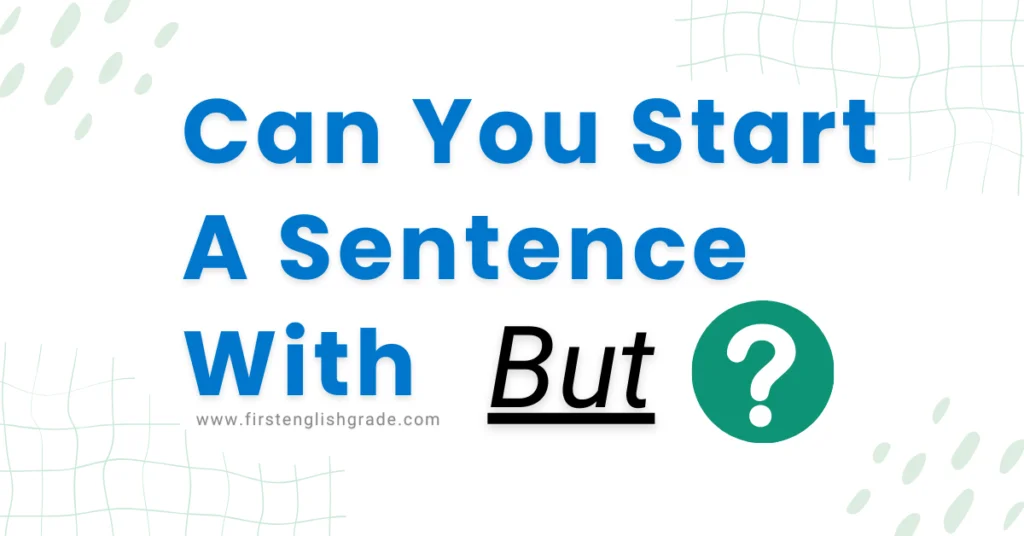
Can You Start a Sentence with But?
Leave a comment cancel reply.
Your email address will not be published. Required fields are marked *
Save my name, email, and website in this browser for the next time I comment.

IMAGES
VIDEO
COMMENTS
Some essay samples below are by students who chose to write about a challenge, while other examples may be helpful if you're looking to write about yourself more generally. And yes, a few of these essays did help these students get accepted into the Ivy League, (I'm not telling you which!) though these are all great essays regardless of ...
How to Write a personal statement A Comprehensive Video Course for Students. A seven-part online course designed to gives students and counselors everything they need to figure out (or help someone else figure out) how to write a personal statement for the Common App. Watch the Q&A sessions after each session where I answer important questions about the personal statement-writing process and ...
You're that person who knows you best, but writing about yourself is still challenging: You read a writing prompt for a college application or scholarship, and you aren't sure if you understand it in detail. ... We hope our 500-word essay example will help you write your perfect story about yourself. If you still have any questions, don't ...
Medium scholarship essay example: Tell us about yourself (250 Words) With a mid-length scholarship essay, you have more space to explain how your past has influenced your present and future goals. You should have rom for an intro paragraph, a few body paragraphs, and a conclusion (maybe incorporated into the last body paragraph).
Also, a describe yourself essay sample may become a great foundation for your admissions essay. Actually, these essay types are similar, but admissions essays are more formal. So, let's start with a helpful guide and tips from EssayBulls essay writer, and then we'll be glad to share our sample with you. How to Write a Describe Yourself ...
Key Elements of Personal Essays. Every great personal essay shares some important qualities: Honesty and Authenticity: Be true to yourself and share real thoughts and stories.; Clarity and Focus: Make sure your essay has a clear goal and conveys your main points effectively.; Engaging Writing Techniques: Using writing techniques, such as vivid language and storytelling, can help captivate ...
Nevertheless, writing an essay about yourself is not, and will never be, a walk in the park. Of all people in this world, you know yourself best. Nevertheless, writing an essay about yourself is not, and will never be, a walk in the park. ... Sample 1: A general essay about yourself . Young and reckless, I messed up college and gave birth at ...
How do you write an essay describing yourself and your accomplishments without making it sound like a resume? Well, just like most things, you get better at writing about yourself … by writing about yourself. ... Telling your reader you were shy, for example, is fine. But opening your essay with this paragraph is more interesting: The clock ...
You either love to talk about yourself or hate it, but one thing is for sure: Writing about yourself in essay form is hard for anyone. Learn how to write the perfect essay about yourself here.
How to Write About Yourself in a College Essay | Examples. Published on September 21, 2021 by Kirsten Courault.Revised on May 31, 2023. An insightful college admissions essay requires deep self-reflection, authenticity, and a balance between confidence and vulnerability.